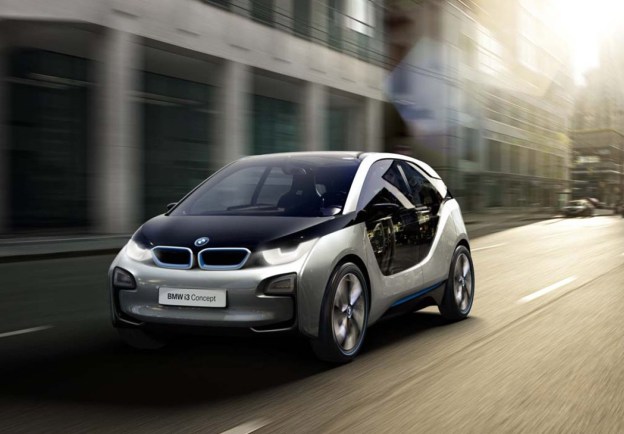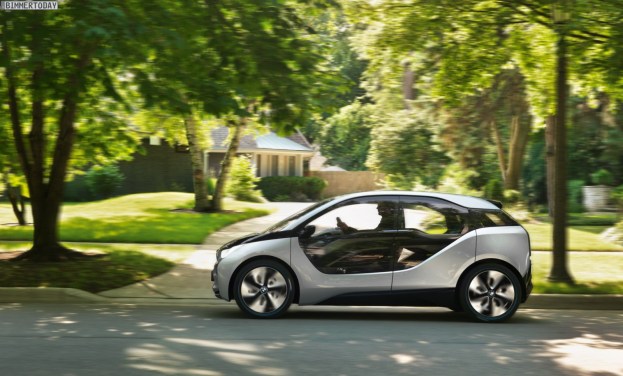 The BMW i3 electric city car won’t be revealed until the Frankfurt Motor Show in September, but BMW is already discussing some of the car’s features. Perhaps to reassure both customers and BMW’s shareholders, they all relate to range anxiety.
The BMW i3 electric city car won’t be revealed until the Frankfurt Motor Show in September, but BMW is already discussing some of the car’s features. Perhaps to reassure both customers and BMW’s shareholders, they all relate to range anxiety.
Short ranges and long charging times create a very low margin of error for EV drivers, which is one of the reasons why few people want to buy an EV. To counteract this, BMW has designed a special infotainment system for the i3, and plans to loan customers gasoline and diesel cars as backups.
A ConnectedDriver infotainment system will read topography and real-time traffic data to provide the driver with the most accurate range estimate possible. This is obviously important, but real-world conditions can change rapidly. Hopefully i3s won’t be providing their drivers with wildly fluctuating range estimates, which could be more confusing than reassuring.
If ConnectedDrive calculates that there isn’t enough range to reach the destination, it will direct the driver to the nearest charging station. That’s assuming there will be a charging station within range, which isn’t something that can be counted on at the moment. It will be interesting to see how far in advance the system plans for recharging stops.
Range Assistant has three modes, Comfort, Eco Pro, and Eco Pro+, that can squeeze extra miles out of the i3.
Comfort is the default, and should be good for 100 miles of range per charge. Eco Pro can increase range by 10 percent (of whatever the actual range is in a given situation) by remapping the throttle. That’s probably code for making the throttle less responsive, making it harder to floor it and waste those precious electrons.
Eco Pro+ changes the transmission’s gearing, puts the climate control into power-saving mode, and limits top speed to 56 mph. It sounds like it wouldn’t be much fun to do on a busy highway, but it could save the hapless i3 driver a trip on a tow truck.

BMW will also sell the i3 with an optional two-cylinder gasoline range extender, which should give the pint-sized hatchback a range of 186 miles.
More details on the i3 should be revealed in the coming months, and we’ll see the finished product at the Frankfurt Motor Show in September.
Editors' Recommendations
- 2024 BMW i5 unveiled as the first electric 5 Series
- Business upfront, 31-inch TV in the back. BMW’s electric i7 is a screening room on wheels
- BMW shows off an electric car with color-changing paint at CES 2022
- 2022 BMW i4 first drive review: The real deal
- 2022 BMW iX first drive: Shifting paradigms


